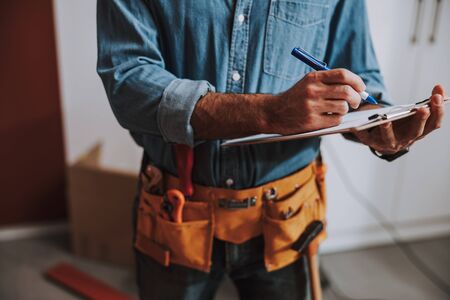Understanding the Indian Renovation Landscape
India’s renovation and remodelling sector is a colourful tapestry woven with tradition, innovation, and regional diversity. When searching for top renovation experts, it is essential to appreciate the unique aspects that set the Indian market apart. Unlike Western markets, Indian renovations are deeply influenced by local cultural trends—ranging from contemporary urban designs in metros like Mumbai and Bengaluru to heritage-inspired themes popular in cities such as Jaipur and Kolkata. Materials selection is another critical aspect; indigenous choices like Kota stone, terracotta tiles, and locally sourced wood not only reflect India’s rich architectural legacy but also ensure cost-effectiveness and durability in different climatic zones. Another crucial consideration is vastu compliance—a traditional Indian practice that aligns architecture with energy flow. Many homeowners seek professionals who understand how to blend modern aesthetics with vastu principles, ensuring both style and spiritual harmony. Recognizing these distinctive elements will guide you towards experts who not only deliver quality workmanship but also respect the nuances of Indian living spaces.
2. Evaluating Credentials and Experience
Selecting the right renovation and remodelling expert in India is not just about flashy advertisements or big promises—it’s about verifying their true capability and reliability. Here are some practical tips to help you assess a contractor’s credentials, experience, and portfolio in the Indian context.
Check Essential Certifications
Before finalising any contractor, ensure they hold the necessary licenses and certifications relevant to your city or state. For example, BMC (Brihanmumbai Municipal Corporation) registration for Mumbai, or BBMP (Bruhat Bengaluru Mahanagara Palike) approval for Bangalore projects. Certified contractors are more likely to follow safety norms and quality standards.
| Region | Common Certification/Approval Required |
|---|---|
| Mumbai | BMC Registration |
| Bangalore | BBMP Approval |
| Delhi NCR | MCD License |
| Chennai | CMDA Registration |
| Kolkata | KMC License |
Review Portfolio & Past Projects
In India, word-of-mouth carries immense value. Ask your shortlisted experts for references from previous clients—preferably in your locality or similar housing societies. Visit their completed sites if possible, or request before-and-after photographs. A credible contractor will always have a ready portfolio and will be transparent about sharing client feedback.
Key Questions to Ask Previous Clients:
- Was the project completed within the promised timeline?
- How was the quality of workmanship?
- Were there any hidden costs or surprises?
- How responsive was the contractor to queries or changes?
- Would you recommend them to others in your community?
Verify Through Local Networks & Online Platforms
In addition to family recommendations and neighbourhood WhatsApp groups, use Indian review platforms like UrbanClap (now Urban Company), Houzz India, or Google Reviews to check ratings and testimonials. These platforms often display genuine reviews from fellow Indians, making it easier to filter out unreliable service providers.
Pro Tip:
If a contractor hesitates to provide references or avoids showing their documentation, consider it a red flag. In India’s diverse market, transparency is a sign of professionalism.

3. Assessing Cultural Sensitivity and Local Knowledge
In India, every home is much more than just bricks and mortar—its an extension of your family’s heritage, values, and unique lifestyle. When selecting a renovation or remodelling expert, it is essential to choose professionals who deeply understand Indian family structures, traditions, and regional architectural preferences.
Importance of Cultural Sensitivity
Indian households often include joint families where multiple generations live together. This means that the home must be designed with spaces for elders, children, and sometimes even domestic staff. Experts who are culturally sensitive will take into account requirements such as pooja rooms, vastu compliance, separate wet and dry kitchen areas, and private nooks for family gatherings. They’ll also understand the significance of festivals like Diwali or Holi, ensuring that design choices accommodate seasonal decorations and traditional celebrations.
Local Knowledge Matters
India’s vastness brings immense diversity in architectural tastes—from Rajasthani jharokhas to Kerala’s sloping roofs or Mumbai’s compact urban apartments. Top renovation experts should have hands-on experience with local materials (like Kota stone or Chettinad tiles), climate considerations (monsoons, heatwaves), and region-specific construction norms. Their familiarity with local craftsmen, suppliers, and municipal regulations can streamline your project and help you avoid costly mistakes.
Choosing the Right Expert
When interviewing potential contractors or designers, ask about their previous projects in your region or community. Request references from clients with similar cultural backgrounds. A top-notch professional won’t just showcase stylish designs—they will demonstrate genuine respect for your family’s customs, rituals, and spatial needs. Ultimately, a culturally attuned approach ensures your renovated home feels harmonious, functional, and truly yours in every sense.
4. Budget Planning and Transparent Quotations
When selecting the top renovation and remodelling experts in India, budget planning is a critical step that can make or break your project. Given the diversity of the Indian market, it is essential to receive detailed and transparent quotations from contractors. This helps you avoid hidden costs and ensures clarity on what is included in the package. Ask for itemised estimates that break down each service, such as design fees, civil work, carpentry, painting, electrical, and plumbing. Additionally, factor in India-specific elements like GST (Goods and Services Tax), regional labour rates, and fluctuating material costs due to market dynamics.
| Budget Component | Key Considerations | Indian Context |
|---|---|---|
| Labour Charges | Rates vary by city and skill level; clarify daily vs. contract rates | Metro cities like Mumbai & Bangalore have higher charges than Tier-2/3 cities |
| Material Costs | Prices fluctuate based on quality and availability; confirm brand choices | Seasonal changes & import duties impact cement, steel, tiles, etc. |
| GST & Taxes | Ensure taxes are included in the final estimate to avoid surprises | Most renovation services attract 18% GST; some items may differ |
| Contingency Fund | Set aside 10-15% extra for unforeseen expenses | Pandemic-related delays or monsoon disruptions can increase costs |
Tips for Transparent Dealings with Contractors
1. Written Quotes:
Always request written estimates on company letterhead mentioning scope of work and payment schedules.
2. No Hidden Charges:
Clarify if site cleaning, debris removal, or transportation are included.
3. Payment Structure:
Avoid full advance payments; follow phased disbursal tied to project milestones.
Cultural Insight: In India, negotiating quotations is customary. Do not hesitate to compare multiple quotes and ask contractors about price justifications. Transparency builds trust—a vital value in Indian business culture—so choose professionals who explain cost details openly and respond promptly to queries.
5. Checking for Legal Compliance and Safety
When selecting top renovation and remodelling experts in India, it is crucial to ensure that your chosen contractor strictly follows all legal and safety regulations. Indian construction projects, whether residential or commercial, are governed by a host of municipal rules, building codes, and national standards. Hiring a contractor who understands the nuances of these laws can save you from unnecessary headaches and costly penalties.
Understanding Local Municipal Rules
Each city or locality in India has its own set of municipal guidelines regarding property modifications. Before work commences, confirm that your contractor is familiar with the local bylaws—be it BBMP norms in Bengaluru, MCGM in Mumbai, or DDA rules in Delhi. Proper permissions such as building plan approvals or No Objection Certificates (NOCs) from housing societies are often mandatory. A seasoned expert will always assist you in securing these documents before breaking ground.
Adhering to Indian Construction Norms
The Bureau of Indian Standards (BIS) lays down specifications for safe construction practices. Top renovation professionals will follow IS Codes relevant to materials, structural stability, electrical wiring, and plumbing systems. Request your contractor to share details about the standards they implement and verify their compliance through site visits and documentation.
Prioritising Worker Safety & Site Security
Construction sites come with inherent risks. Reputed contractors in India take worker safety seriously by providing personal protective equipment (PPE), ensuring proper scaffolding, and maintaining fire safety protocols as per the National Building Code (NBC). They also carry valid insurance for workers and third-party liabilities—an absolute must to protect yourself from legal complications in case of on-site accidents.
Transparent Paperwork and Contracts
Never proceed without a written contract that clearly mentions compliance with government norms, approved plans, timelines, and payment schedules. This document should also state the contractor’s responsibility for obtaining all necessary permissions and adhering to safety guidelines throughout the project lifecycle.
Why Legal Compliance Matters
Ensuring your renovation expert meets all legal requirements not only safeguards your investment but also enhances the long-term value of your property. In India’s dynamic urban landscape, overlooking these aspects can lead to demolition notices or heavy fines. By prioritising legal compliance and safety, you lay a strong foundation for a hassle-free renovation journey.
6. Communication and Support
Effective communication is the backbone of any successful renovation or remodelling project in India. With the country’s rich linguistic diversity, clear and open dialogue between you and your contractor—whether in English, Hindi, or a regional language such as Tamil, Telugu, Bengali, or Marathi—is essential to avoid misunderstandings and ensure that your vision is executed perfectly.
The Role of Language in Collaboration
When selecting top renovation experts, assess their ability to converse fluently in your preferred language. Many leading firms in cities like Mumbai, Delhi, Bengaluru, and Chennai offer multilingual support. This not only fosters trust but also helps in understanding the finer details of materials, timelines, and cost estimates. Never hesitate to request communication in the language most comfortable for you and your family.
Continuous Updates for Peace of Mind
Throughout the project lifecycle—from planning and design to execution and finishing touches—ongoing support is crucial. The best Indian remodelling professionals provide regular updates via WhatsApp messages, phone calls, site visits, or even video conferencing. This transparency helps you stay informed about progress and quickly address any concerns or changes required.
Cultural Sensitivity and Customer Support
Indian homes are deeply influenced by cultural preferences, Vastu Shastra principles, and family traditions. Top experts respect these nuances by listening attentively to your requirements and offering personalised solutions. Look for teams that provide dedicated customer support even after project completion—such as maintenance tips or troubleshooting advice—to ensure a truly hassle-free renovation experience.
By prioritising clear communication and reliable support throughout your journey, you will enjoy a smoother process and results that reflect your unique style and cultural values.


